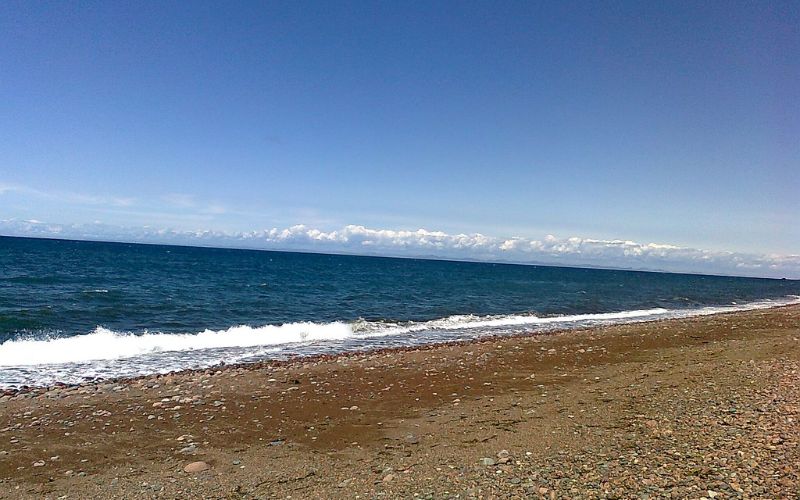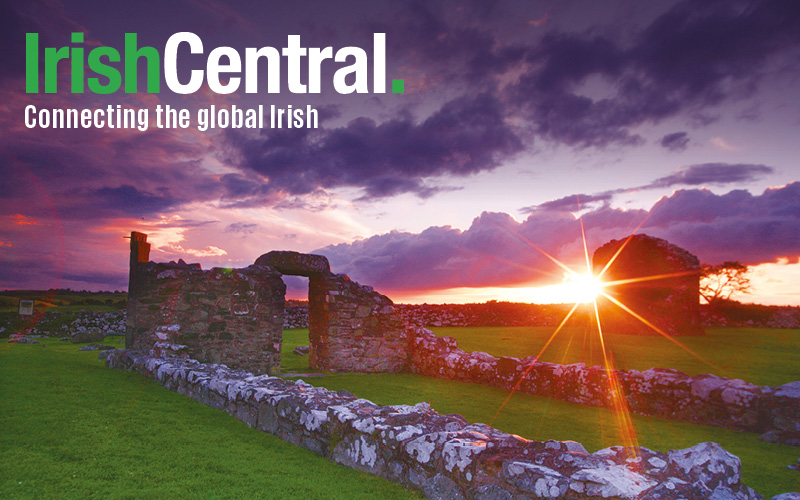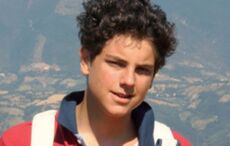A new exhibition in Manhattan reveals Winston Churchill's connection to Ireland.
When he died in 1965, at the age of 91, Churchill left behind nearly a million pieces of paper documenting his life as a journalist, soldier, politician, statesman, historian and author. According to the Irish Times, it took five archivists five years to catalogue 2,500 boxes of his papers in Cambridge.
'Churchill: The Power of Words," opened on Friday at the Morgan Library and Museum in New York. The project was curated and designed by Allen Packwood, director of the Churchhill Archives at Churchill College Cambridge, along with Morgan Library's head of historical manuscripts Declan Kiely, and Mark Leslie, the managing director of the Irish firm Martello Media.
One of the most interesting documents in the exhibition is a secret telegram that Churchill, as Britain’s wartime prime minister, sent to Taoiseach Éamon de Valera after the Japanese bombed Pearl Harbor. “Now is your chance,” it says. “Now or never. ‘A nation once again’. Am very ready to meet you at any time.”
Leslie and Kiely believe the telegram is “the smoking gun” that proves the long-held belief that Churchill offered de Valera the North if Ireland would renounce neutrality.
However, Packwood interprets the telegram differently: “Churchill could be harking back to when we were one kingdom. Perhaps he was deliberately ambiguous. This is exactly the sort of debate we hope these documents will spark.”
The Cambridge dons who gave the go-ahead for the project “didn’t understand why on earth an Irish company should design an exhibition on Winston Churchill”, says Leslie. “I didn’t tell them I was Churchill’s first cousin twice removed, but I mentioned than an Irish lawyer in New York, William Bourke Cockran, taught Churchill elocution. I knew because it was family legend.”
Cockran, a former teacher from Sligo until he emigrated to New York where he became a prominent lawyer and politician, became romantically involved with Churchill's widowed mother, Jennie Jerome, in Paris. When young Winston, working as a journalist, stopped in New York on the way to cover the Cuban war of independence against Spain in 1895, he stayed at Cockran's Fifth Avenue residence.
Decades later, US politician Adlai Stevenson would write: “I asked the Prime Minster, ‘How do you account for your oratorical ability?’ and the Prime Minister said, ‘It was the New York lawyer Bourke Cockran who taught me to use my voice like a scale of the human emotions, how to hold thousands in thrall. I owe him everything.'"
Churchill’s grandfather, the Duke of Marlborough, was viceroy of Ireland and inhabited what is now Áras an Uachtaráin. Churchill lived in Dublin from the age of two until age six, when his father, Lord Randolph, served as the Duke’s secretary.
Lady Randolph Churchill’s American sisters both married Irishmen.
“Churchill ended up with one Irish first cousin who was a Bolshevik (Claire Sheridan) and another who was an Irish nationalist (Shane Leslie),” says Leslie.
Leslie doesn't believe that Churchill was anti-Irish, “merely anti-extreme Republicanism. He was pro-Home Rule. He supported the Irish Free State. He always acknowledged the influence of Bourke Cockran.”
Packwood thinks Churchill would have been influenced by his father Lord Randolph’s line that “Ulster will fight and Ulster will be right."
“Churchill is an imperialist,” Packwood says. “His preference is that Ireland remain part of Britain; if not, at least part of the Empire and Commonwealth. Although he inherits his father’s line, in practice, he is more flexible.”
During negotiations, Churchill established a personal connection with Michael Collins, over dinners at Hazel Lavery’s home in London.




Comments